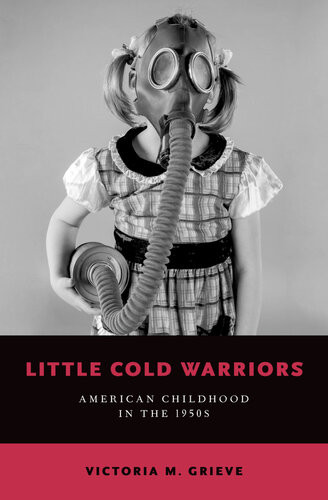

Most ebook files are in PDF format, so you can easily read them using various software such as Foxit Reader or directly on the Google Chrome browser.
Some ebook files are released by publishers in other formats such as .awz, .mobi, .epub, .fb2, etc. You may need to install specific software to read these formats on mobile/PC, such as Calibre.
Please read the tutorial at this link: https://ebookbell.com/faq
We offer FREE conversion to the popular formats you request; however, this may take some time. Therefore, right after payment, please email us, and we will try to provide the service as quickly as possible.
For some exceptional file formats or broken links (if any), please refrain from opening any disputes. Instead, email us first, and we will try to assist within a maximum of 6 hours.
EbookBell Team

4.1
50 reviewsBoth conservative and liberal Baby Boomers have romanticized the 1950s as an age of innocence—of pickup ball games and Howdy Doody, when mom stayed home and the economy boomed. These nostalgic narratives obscure many other histories of postwar childhood, one of which has more in common with the war years and the sixties, when children were mobilized and politicized by the U.S. government, private corporations, and individual adults to fight the Cold War both at home and abroad. Children battled communism in its various guises on television, the movies, and comic books; they practiced safety drills, joined civil preparedness groups, and helped to build and stock bomb shelters in the backyard. Children collected coins for UNICEF, exchanged art with other children around the world, prepared for nuclear war through the Boy and Girl Scouts, raised funds for Radio Free Europe, sent clothing to refugee children, and donated books to restock the diminished library shelves of war-torn Europe. Rather than rationing and saving, American children were encouraged to spend and consume in order to maintain the engine of American prosperity. In these capacities, American children functioned as ambassadors, cultural diplomats, and representatives of the United States. Victoria M. Grieve examines this politicized childhood at the peak of the Cold War, and the many ways children and ideas about childhood were pressed into political service. Little Cold Warriors combines approaches from childhood studies and diplomatic history to understand the cultural Cold War through the activities and experiences of young Americans.